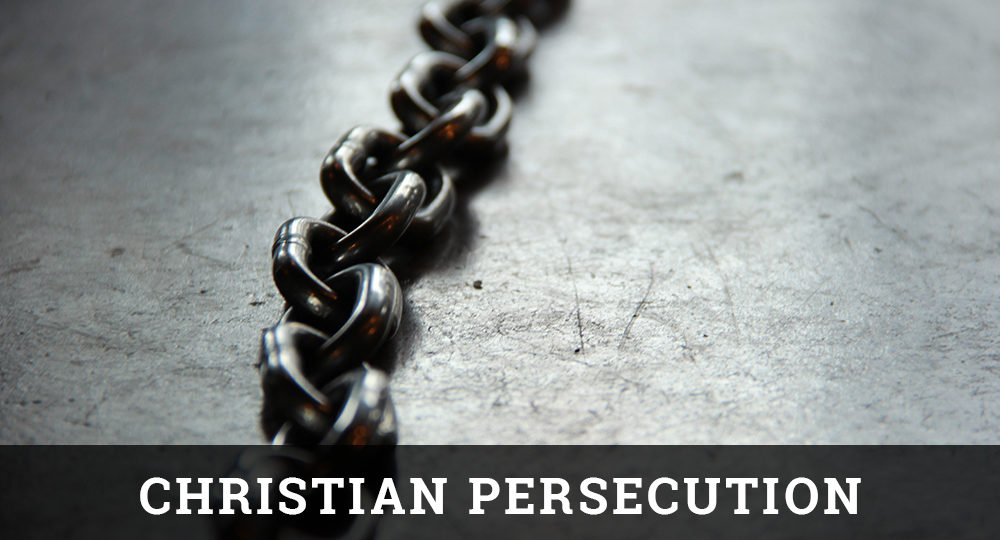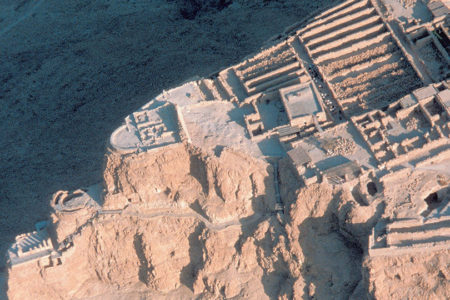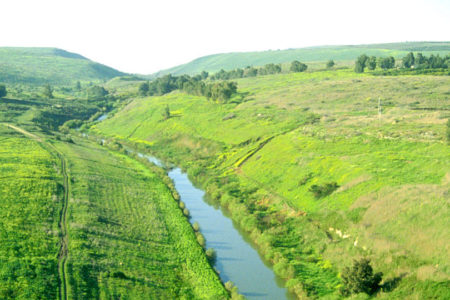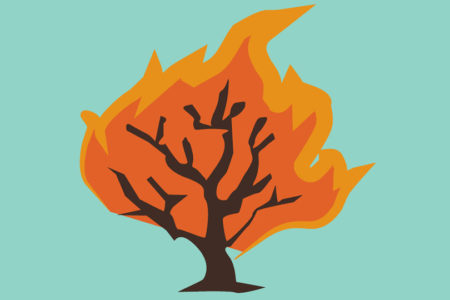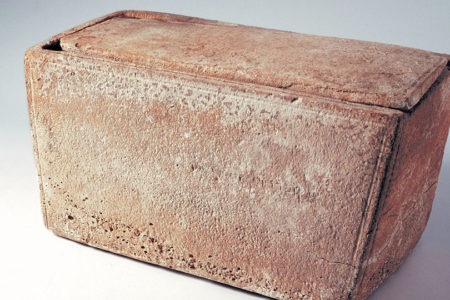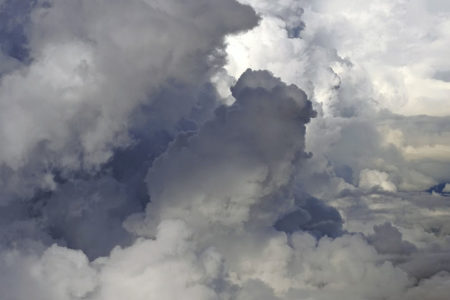They Cry in Silence Jul/Aug 2003
They call them “chop squares,” execution sites usually outside mosques where the condemned meet their deaths at the hands of a sword-wielding executioner. For people found guilty of any of the following— murder, rape, armed robbery, drug smuggling, apostasy (turning your back on Islam) or witchcraft—the price is beheading.
These grisly executions are not conducted in primitive backwater societies but in the modern cities of one of America’s and the Western world’s foremost allies, Saudi Arabia.
In the Saudi kingdom, where the strictest form of Islam, Wahhabism, is the law of the land, turning from Islam to another faith can cost you your head.
And Christians are routinely imprisoned, tortured, and expelled. International Christian Concern reported that three Ethiopian Christians held in the Breman Deportation center related being tortured by prison officials. The men were suspended in the air and flogged eighty times with a metal cable. Upon arriving at the prison hospital for treatment, they were slapped and told to come back when they were dead.1
Thirteen Filipino Christians were detained for twenty-four days after Saudi religious authorities raided two houses in Riyadh where 267 Christians had gathered to pray. Forty were arrested.
A Christian hospital worker was arrested and interrogated for three and one-half hours about group meetings in his home. Authorities confiscated his computer, photo albums, Bibles, songbooks, and all of his audio cassettes and videotapes.
Evangelical Christians who have served in the armed forces or been employed by companies operating in Saudi Arabia have been made painfully aware that our oil-rich “ally” severely represses Christians and Christianity.
In an annual report issued by the U.S. Commission on Religious Freedom, a commission formed by Congress in 1998, Saudi Arabia has been named the world’s top violator of religious rights. Commission Chairman Felice Gaer stated after the release of the report, “It’s time to apply the same standards to Saudi Arabia that are applied elsewhere.” The Washington Times has reported that the commissioners called on the Saudis to “let non-Muslims at least practice their religion in private and criticized the kingdom for ‘harassment, detention, arrest, torture,’ and deportation of foreign Christians employed in the country.”
The newspaper also said the commission called on the ruling royal family to end the “‘offensive and discriminatory language’ disparaging Jews, Christians, and non-Wahhabi Muslims found in government-sponsored school textbooks, in Friday sermons preached in prominent mosques, and in state-controlled Saudi newspapers.”2
A recent poll of 350 evangelical Christian leaders found that 73 percent believe that stopping religious persecution should be a “top priority” of American foreign policy. But in countries like Saudi Arabia, freedom of religion does not exist; and persecution continues unabated.
One question the commission asked was why American officials acquiesce to such Saudi demands as the one that resulted in a recent U.S. Postal Service prohibition against mailing materials “contrary to the Islamic faith” to U.S. troops in the Middle East. Despite this and other egregious violations of human rights, Saudi Arabia has never been deemed a “country of particular concern (CPC),” the diplomatic term for the most severe human rights violators.
“We don’t understand how one could not name Saudi Arabia as a CPC,” a member of the commission said. The country has been “explicitly left out of any (State Department) citations.”3
A One-Way Street
The most frequently given answer as to why America has failed to crack down on Saudi behavior is that it might jeopardize the economic relationship between the two countries. Although that issue and American military interests in the region are clearly factors, it is also true that to endorse suppressing the private exercise of the religious freedom of American citizens is a serious violation of our most basic values.
In fact, for years the Saudis have operated on an uneven playing field in the religious realm as our politicians and most of our religious leaders look the other way.
There are no churches or synagogues in Saudi Arabia. As has been described, even worshiping quietly in private homes and possessing personal religious items can lead to imprisonment, torture, or deportation. Wearing such items as a small cross or Star of David or carrying a New Testament in your shirt pocket is considered a provocation. By no definition is Saudi Arabia a country of religious pluralism, and in no way does it tolerate a personal faith that is not Islamic.
However, Saudi ideas about propagating faith do not stop the Saudis from propagating their own faith outside the desert kingdom. It is well known that while enjoying the protection and sufferance of the West, Saudis have lavishly contributed to leading terrorist organizations bent on slaughtering Israelis and Westerners, including Americans and Europeans.
They have bankrolled the construction of hundreds of mosques and Muslim academic institutions in countries whose citizens are not allowed to worship publicly or build churches in Saudi Arabia. Most Saudi-sponsored educational institutions are based on Wahhabism teachings, which are extremely hostile to democratic, religious freedoms. And Saudis vigorously promote proselytizing in the West where it can be done freely and under the protection of law. Thus they blatantly practice in the West what would bring them imprisonment, beatings, torture, and worse if attempted by people of other faiths in their own country.
True, we are not on a level playing field when dealing with religiously repressive regimes, such as Saudi Arabia. Yet we are urged to believe that the war on terror and Islamic militancy is unrelated to religion. We are told that downtrodden Muslims are fighting a war of liberation, searching for a sense of identity, and striking out against those they feel have wronged them. That line is not true.
We are engaged in warfare with an Islamic element that is on a crusade to bring down the West, destroy Judeo-Christian democracies, and exterminate or subjugate the infidel enemies of Allah and Islam.
This is not an expression of ignorance or intolerance; it is simply a fact. And in the case of Saudi Arabia, at least one government agency, the U.S. Commission on Religious Freedom, is getting it right.
ENDNOTES
- International Christian Concern, “Middle East: Saudi Arabia” [www.persecution.org/humanrights/ saudi_arabia.html].
- Julia Duin, “Saudis top religious violators,” The Washington Times, May 14, 2003 [http://216.239.39.100/search?hl=en&q=cache: sOcA1k_TErIJ:http://www. washtimes.com/national/ 20030514-97788043.htm+%22Julia+Duin%22+ Washington+Times+Saudi+Arabia].
- Ibid.
